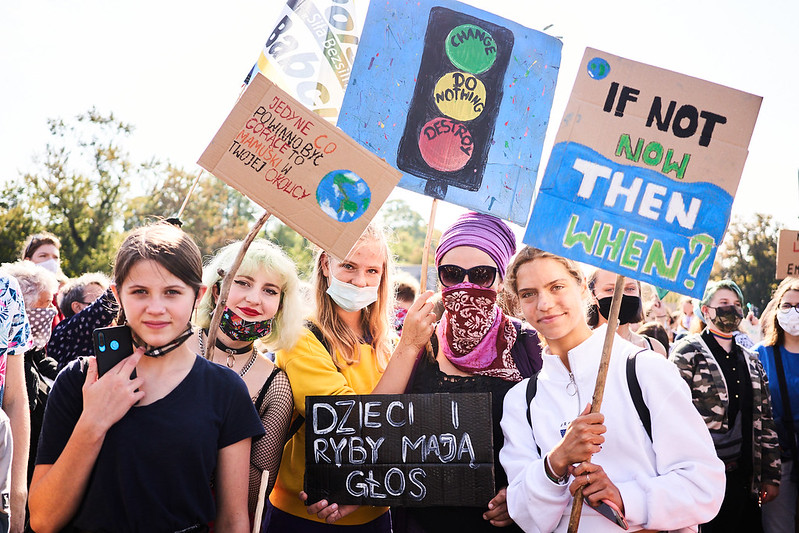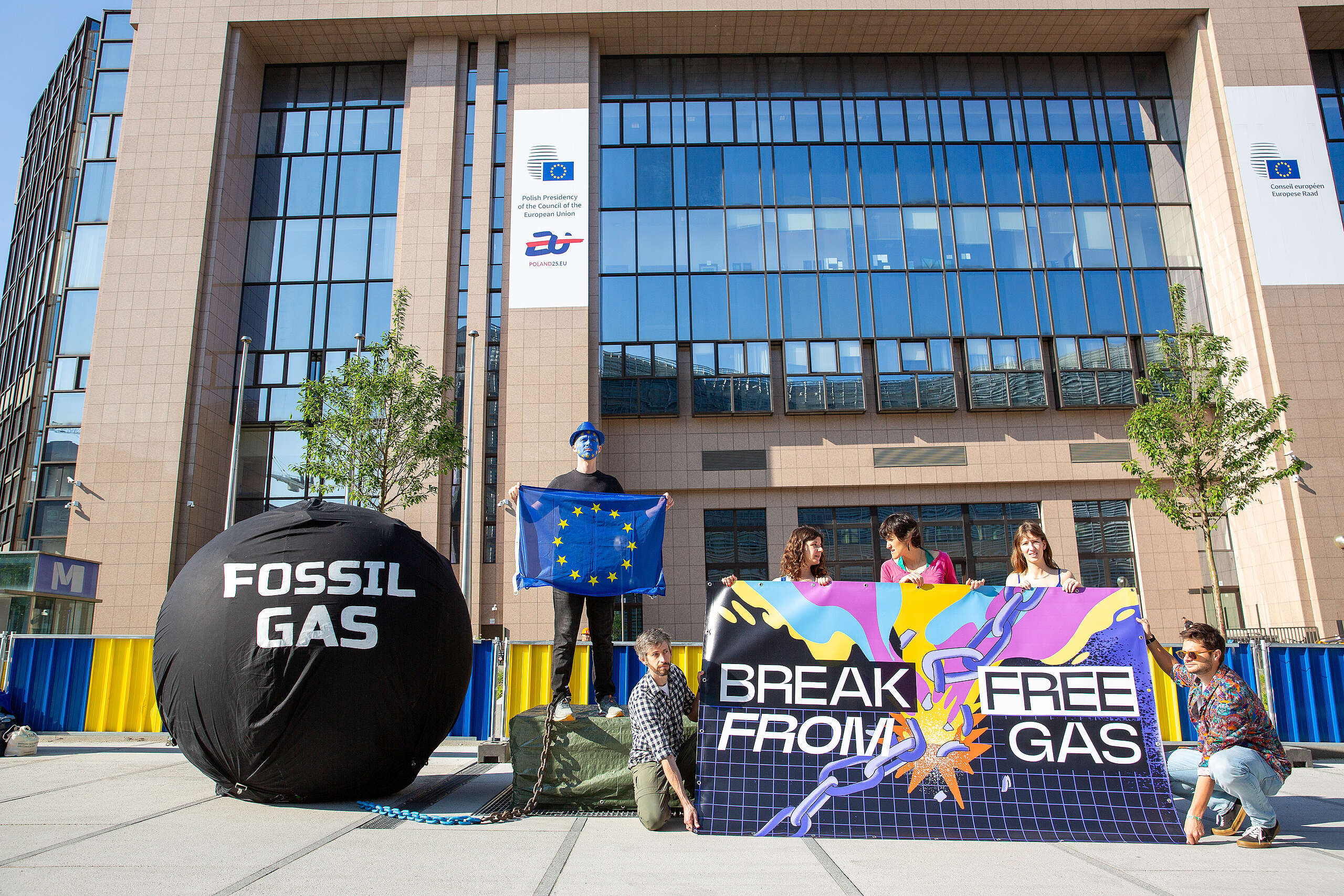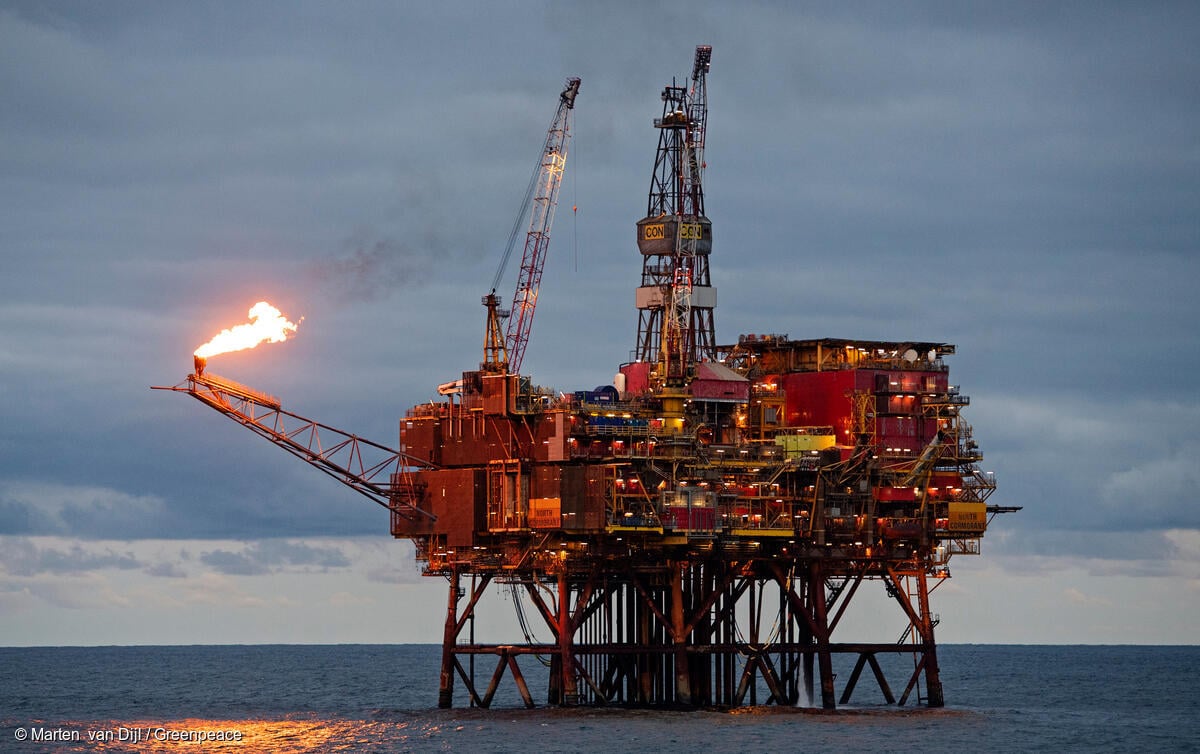
Brussels – In a vote on a new EU climate law on Tuesday, the European Parliament backed an increase in the EU’s 2030 climate target to a 60% cut in emissions.
The Parliament also rejected a European Commission plan to rely on carbon sinks like forests and grasslands to artificially inflate the 2030 climate target. Remaining amendments on the climate law will be voted on on Wednesday afternoon, with a final vote taking place the same evening.
The 2030 target supported by the EU Parliament would take the EU a step closer to achieving the Paris climate agreement’s goal to limit global heating to 1.5°C. To increase the chances of reaching this goal and to limit the worst effects of climate breakdown, Greenpeace calls for a minimum 65% cut in EU emissions by 2030.
Greenpeace EU climate policy adviser Sebastian Mang said: “The EU Parliament has made it clear that it’s the strongest player on the EU field. The problem is that most governments and the EU Commission are still playing in the third division when it comes to climate science. A 60% cut in emissions by 2030 may compare well to what many have put on the table, but it’s not yet enough compared to what scientists say is necessary to avoid dangerous climate breakdown. European governments now need to step up. Millions of Europeans will continue to challenge them to do what science demands to protect their future.”
The EU Parliament also supported:
— making the overall EU 2050 climate neutrality target binding on each EU country;
— requiring the European Commission to table a proposal for a 2040 climate target;
— creating a European climate change council of scientists, which would scrutinise EU climate policies, including targets;
— requiring the Commission to table a carbon budget for the EU by December 2021, detailing the remaining carbon emissions that would be possible to keep within the Paris Agreement’s temperature threshold.
EU environment ministers will meet on 23 October to attempt to agree a common position on the EU climate law, in order to begin final negotiations with the EU Parliament. The success of the talks and the level of the 2030 target are expected to be closely linked to parallel discussions about access to coronavirus recovery funds for national governments.
For the first time since the coronavirus pandemic, people across Europe are staging a wave of protests to demand climate action in line with science, and environmental, social and economic justice.
Contacts:
Sebastian Mang – Greenpeace EU climate policy adviser: +32 (0)479 601289, [email protected]
Greenpeace EU press desk: +32 (0)2 274 1911, [email protected]
For breaking news and comment on EU affairs: www.twitter.com/GreenpeaceEU
Greenpeace is an independent global campaigning organisation that acts to change attitudes and behaviour, to protect and conserve the environment and to promote peace. Greenpeace does not accept donations from governments, the EU, businesses or political parties.



